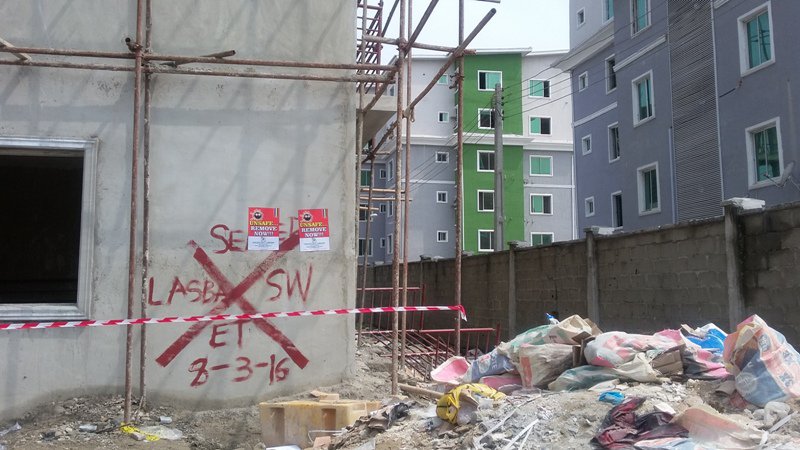- Lekki Gardens Repositions, Unveils new Technical Structure
Lekki Gardens Estate Limited, has strengthened its technical team to ensure timely delivery of quality and affordable housing to its esteemed clients.
To achieve this, the company has engaged topnotch consultants and contractors in different aspect of the construction value chain as work recommences across all its project sites after carrying out due system and process overhauling.
Speaking at a special media parley held in Ikeja GRA, recently, the Managing Director/Chief Executive Officer, Lekki Gardens Estate Limited, Mr. Richard Nyong disclosed that the company embarked on a strategic overhauling of its business, processes and people to enable it deliver a better housing experience to its clients.
“In the last six months, we have taken time to review and strengthen our technical structure, today Lekki Gardens now boasts of a solid technical team with qualified and experience professionals to deliver a world-class housing experience to our clients. Also, Lekki Gardens now works with the ‘best in class’ among building and construction consultants and contractors in Nigeria” he said.
While assuring the clients and stakeholders of the company that their investment is safe and appreciating in value in spite of the current economic downtown, Mr Nyong revealed that despite the temporary setback, the company remains economically viable and liquid without any form of indebtedness to any bank. He revealed that the accounts of the company have been audited and certified satisfactory by Ernst &Young – a global auditing firm.
Richard Nyong used the medium to announce the appointment of Mr. Andrew Jibunor, a seasoned and experienced building and construction expert with experience spanning decades working with the biggest players in the industry as the Chief Technical Officer (CTO) for Lekki Gardens. He also stated that the company has made other key appointments in other departments of the company.
He explained that while work has started in some of Lekki Gardens sites, he stated that work would commence fully across all project sites by the end of October. He appealed to the clients for their understanding as the delay in delivery is warranted by the restructuring which would ensure that the company deliver world class quality housing.
Also speaking at the event, the new Chief Technical Officer (CTO), Mr. Andrew Jibunor stated that the company has put in place some policies including Quality Management, Planning & Coordination as well as Health, Environment and Safety all in the pursuant of the global best practice.
Jibunor said “In line with the mandate of the technical team, we are leaving no stone unturned in ensuring best quality standards at every stage of the building process. Our new process ensures that every project passes through a more rigorous procedure of monitoring, supervision and approval to ensure that we deliver a unique housing experience for our clients.”
He stressed further that Lekki Gardens has raised the bar in terms of the requirements for consultants and contractors in qualifying to work with the company noting that by so doing, the company now works with the very best in the industry.
Highlighting some of the milestones achieved by the company, Jibunor stated that the new technical team has introduced a new health, safety and environment regime which is mandatory for all Lekki Gardens facilities, workers, contractors and visitors to comply with. He noted that this includes; Personal Protective Equipment (PPE), Signages, training and deployment of safety representatives/officers across all sites as well as safety induction for all visitors.
In ensuring a technically sound building and construction, he added that the technical team has carried out a condition survey for sites, building and structures to ensure the quality of work in terms of existing design information appraisal, visual appraisals and inspections as well as other appraisals like soil tests/CPT, NDT, pile loads, Perimeter Survey, Confirmation of Topographical & Spot levels and M&E installation tests and integrity tests.
Jibunor added that the new technical team has integrated the use of information technology in their systems with the introduction of the builders’ trend to provide a bird’s eye-view of all their projects on one mobile platform for all stakeholders. The builders’ trend communication platform equips all the company’s stakeholders, marketers and subscribers, with an easier mode of tracking and follow-ups as well as updates on all ongoing projects.


 Billionaire Watch3 weeks ago
Billionaire Watch3 weeks ago
 Startups4 weeks ago
Startups4 weeks ago
 News4 weeks ago
News4 weeks ago
 News4 weeks ago
News4 weeks ago
 Bitcoin4 weeks ago
Bitcoin4 weeks ago
 Naira4 weeks ago
Naira4 weeks ago
 Forex3 weeks ago
Forex3 weeks ago
 Treasury Bills4 weeks ago
Treasury Bills4 weeks ago
























